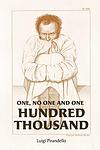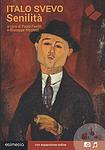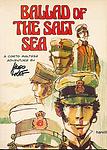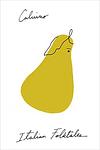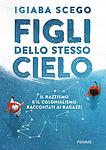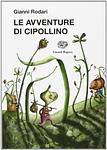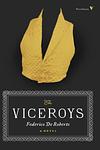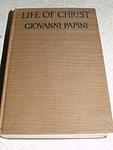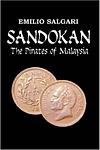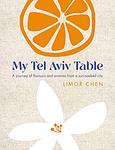The Greatest Italian "Fiction" Books of All Time
Click to learn how this list is calculated.
This list represents a comprehensive and trusted collection of the greatest books. Developed through a specialized algorithm, it brings together 300 'best of' book lists to form a definitive guide to the world's most acclaimed books. For those interested in how these books are chosen, additional details can be found on the rankings page.
Genres
Countries
Date Range
Reading Statistics
Click the button below to see how many of these books you've read!
Download
If you're interested in downloading this list as a CSV file for use in a spreadsheet application, you can easily do so by clicking the button below. Please note that to ensure a manageable file size and faster download, the CSV will include details for only the first 500 books.
Download-
26. One, No One and One Hundred Thousand by Luigi Pirandello
The book tells the story of a man who has his identity shattered when his wife casually notes that his nose tilts to the right, something he had never noticed before. This seemingly insignificant comment leads him into an obsessive quest to understand how he is perceived by others, and he gradually loses his sense of self as he fragments into a multitude of characters. The protagonist's existential crisis intensifies as he realizes that everyone he meets perceives him differently, leading him to question his own existence and ultimately, his sanity.
-
27. Senilità by Italo Svevo
"Senilità" is a psychological novel that follows the life of a middle-aged man, Emilio Brentani, who falls in love with a younger woman, Angiolina, who manipulates and betrays him. Emilio's obsession with Angiolina leads him into a downward spiral of self-destruction, as he grapples with feelings of jealousy, paranoia, and self-loathing. The novel explores themes of aging, loneliness, and the human condition in modern society.
-
28. A Violent Life by Pier Paolo Pasolini
"A Violent Life" explores the journey of a young man from the slums of Rome who becomes entangled in the world of crime. As he navigates through this violent and chaotic life, he is confronted with the harsh realities of poverty, injustice, and the struggle for survival. The narrative provides a stark and unflinching examination of the underbelly of Italian society, revealing the deep-seated corruption and systemic inequality that pervades it. The protagonist's life is a testament to the destructive cycle of violence and despair that traps the marginalized and underprivileged.
-
29. Silk by Alessandro Baricco
"Silk" is a historical fiction novel that tells the story of a 19th-century French silkworm merchant who travels to Japan for business. During his travels, he becomes enamored with a mysterious woman. His unrequited love for her haunts him for the rest of his life, even as he returns to France and continues his life there. The novel explores themes of love, longing, and the profound impact that brief encounters can have on one's life.
-
30. Ballad of the Salt Sea by Hugo Pratt
This graphic novel follows the adventures of a young sailor who becomes entangled in a dangerous plot involving pirates, kidnappings, and political intrigue in the South Seas. Set in the early 20th century, the story is filled with historical references and exotic locales, providing a rich backdrop for the complex narrative. The sailor's journey is not just physical but also emotional, as he navigates the treacherous waters of personal relationships and moral dilemmas.
-
31. Italian Folktales by Italo Calvino
This book is a comprehensive collection of 200 traditional Italian folktales, meticulously gathered from different regions of Italy. The stories range from humor to horror, from fairy tales to moral lessons, from whimsical to deeply symbolic, showcasing the rich cultural heritage of Italy. These tales, translated and retold, provide a fascinating insight into the folklore, traditions, and beliefs of Italian people.
-
32. Family Sayings by Natalia Ginzburg
"Family Sayings" is a semi-autobiographical novel that explores the author's experiences growing up in a large Jewish-Italian family in the pre and post-World War II era. The narrative is a collection of family anecdotes, sayings, and stories that illustrate the dynamics, relationships, and history of the family. The book also provides a glimpse into the political and social changes in Italy during this period, including the rise of fascism and the impact of the war. The author's poignant and evocative storytelling brings to life a world that is both deeply personal and universally relatable.
-
33. The Ragazzi by Pier Paolo Pasolini
The book is a poignant exploration of post-war Italian youth, delving into the lives of a group of boys from the slums of Rome as they navigate the challenges of poverty, social exclusion, and the struggle to find their identities. Set against the backdrop of a country grappling with the aftermath of fascism and the rise of consumerism, the narrative portrays the harsh realities of street life, where the ragazzi, or boys, engage in petty crime, prostitution, and moments of tenderness, all while dreaming of escape and a better future. The novel is a gritty, raw depiction of the loss of innocence and the corrosive effects of societal neglect on the young generation.
-
34. The Adventures Of Cipollino by Gianni Rodari
"The Adventures of Cipollino" is a delightful children's book filled with whimsical characters and enchanting adventures. Set in a world of fruits and vegetables, the story follows the brave and mischievous Cipollino, a little onion, as he leads a rebellion against the tyrannical Prince Lemon and his oppressive regime. With a blend of humor, fantasy, and social commentary, this captivating tale teaches valuable lessons about justice, friendship, and the power of standing up for what is right.
-
35. The Selected Works of Cesare Pavese by Cesare Pavese
This collection showcases the best works of a renowned Italian author and poet who was deeply influenced by American literature and culture. The book includes his writings that explore themes of loneliness, self-loathing, and existential despair, often set against the backdrop of rural Italy. The author's unique style of storytelling, characterized by his use of simple language and profound introspection, is highlighted in this compilation.
-
36. Gogol's Wife by Tommaso Landolfi
"Gogol's Wife" is a collection of short stories that are known for their unique blend of fantasy, history, and reality. The stories revolve around a variety of themes, from a man's bizarre relationship with his inflatable wife to a writer's struggle with a demanding publisher. The book is characterized by its surrealism, dark humor, and exploration of the human condition, offering readers a glimpse into the strange and often absurd aspects of life.
-
37. The Orlando Furioso by Lodovico Ariosto
"The Orlando Furioso" is an epic poem that tells the story of Orlando, a knight who falls madly in love with a pagan princess. His unrequited love drives him to madness, causing him to abandon his knightly duties and wander aimlessly. The poem also includes various subplots involving other knights and their adventures, including battles with monsters and sorcerers, quests for magical artifacts, and romantic entanglements. The work is known for its complex structure, richly detailed descriptions, and vividly drawn characters.
-
38. Il Piacere by Gabriele D'Annunzio
"Il Piacere" is a novel set in late 19th century Italy that explores the life of a wealthy and hedonistic aristocrat. The protagonist is caught in a constant pursuit of pleasure, indulging in luxurious parties, love affairs, and the arts, while struggling with ennui and a sense of emptiness. His life takes a turn when he falls in love with a woman who challenges his views and lifestyle. The novel delves into themes of decadence, hedonism, and the search for meaning in life.
-
39. The Path to the Nest of Spiders by Italo Calvino
The novel is set in Italy during World War II and follows the journey of a young boy who joins the Italian resistance against the Nazis. The story is a coming-of-age tale that explores the boy's struggle to find his identity amidst the chaos of war. Along the way, he encounters various characters, each with their own stories and perspectives on the war, which further shape his understanding of the world. The title refers to a hidden nest of spiders the protagonist discovers, symbolizing the hidden complexities of life and war.
-
40. The Castle of Crossed Destinies by Italo Calvino
"The Castle of Crossed Destinies" is a unique narrative where the characters, unable to speak, tell their stories through the use of tarot cards. The book is divided into two parts, each set in a different castle, and features a variety of characters, including knights, kings, and queens, who each use the cards to weave their own tales. The stories are interconnected, creating a complex web of tales that explore themes of fate, destiny, and the interconnectedness of human experiences.
-
41. The Viceroys by Federico De Roberto
"The Viceroys" is a historical novel set in 19th century Sicily, during the Italian unification. The story revolves around the aristocratic Uzeda family, who are trying to retain their power and influence in the changing political landscape. The narrative explores themes of power, corruption, and the decline of the aristocracy through the lens of this manipulative and scheming family. The book is a critique of the social and political system of the time.
-
42. Bébo's Girl by Carlo Cassola
"Bébo's Girl" is a poignant tale set in the backdrop of World War II, focusing on the relationship between a young partisan, Bebo, and Mara, a simple and innocent country girl. Their love story unfolds amidst the grim realities of war, where Bebo's commitment to his cause often conflicts with the peaceful life he desires with Mara. The narrative explores themes of love, sacrifice, and the devastating impact of war on personal lives, ultimately leading to a tragic end.
-
43. Disobedience by Alberto Moravia
"Disobedience" is a novel about a young man, Luca, who refuses to serve in the Italian army during World War II. The narrative explores his experiences as he hides from the authorities, the moral dilemmas he faces, his sexual awakening, and his relationship with his mother. His refusal to obey the military draft serves as a symbol of his rebellion against societal norms and expectations, as well as his search for personal identity and freedom.
-
44. Conversations in Sicily by Elio Vittorini
"Conversations in Sicily" is a semi-autobiographical novel that explores the journey of a man returning to his native Sicily after many years away. The protagonist's journey is both physical and emotional as he reconnects with his past, his culture, and his mother, while also confronting his disillusionment with the political and social realities of the time. The narrative is filled with poetic and philosophical dialogues, providing a deep exploration of Sicilian life, identity, and the human condition.
-
45. The Harvesters by Cesare Pavese
"The Harvesters" is an evocative tale set in the rural landscapes of Italy in the early 20th century. The narrative follows a young man who, after a life of hardship and poverty, leaves his village to seek a better life in the city. However, he soon finds himself drawn back to his roots, yearning for the simplicity and authenticity of rural life. The novel explores themes of identity, belonging, and the eternal conflict between progress and tradition, offering a poignant portrayal of the human condition.
-
46. Life of Christ by Giovanni Papini
"Life of Christ" is a comprehensive biography of Jesus Christ, exploring his life, teachings, and impact on humanity. The book delves into the historical, cultural, and spiritual context of his era, providing in-depth analysis of his miracles, parables, and relationships with his disciples and followers. The author also examines the significance of Christ's crucifixion and resurrection, aiming to provide a thorough understanding of his life and mission.
-
47. Sandokan by Emilio Salgari
"Sandokan" is an adventure novel set in the 1800s, focusing on the daring exploits of its eponymous hero, a pirate known as the "Tiger of Malaysia". A feared and respected figure, Sandokan battles against the Dutch and British Empires while trying to regain his rightful throne. His life takes a dramatic turn when he falls in love with Marianna, a young woman of noble birth, leading to a series of thrilling adventures and battles as he tries to win her heart and restore his lost kingdom.
-
48. Petrarch's Songbook by Francesco Petrarca
"Petrarch's Songbook" is a collection of 366 poems by the Italian scholar, poet, and humanist. The book is divided into two parts, the first part comprising of love sonnets dedicated to his muse Laura, whom he met in Avignon in 1327, and the second part contains poems written after Laura's death. The poems are notable for their personal and emotional intensity, reflecting the poet's innermost thoughts and feelings. They also represent a significant contribution to the development of the Italian sonnet form and have had a profound influence on European poetry.
-
49. The City Of The Sun by Tommaso Campanella
"The City of the Sun" is a philosophical work that presents a visionary society where goods, women, and children are held in common. It describes a utopian city governed by a theocratic and philosophical elite, where the inhabitants live harmoniously, dedicating their lives to knowledge, virtue, and the collective well-being. The city is structured with concentric walls adorned with scientific and artistic knowledge, reflecting the society's dedication to intellectual enlightenment and the eradication of ignorance and vice. The work serves as a critique of European society of the time, proposing a radical alternative that emphasizes communal living, education, and the blending of religion and science as the foundations of a just and prosperous community.
-
50. The Patriot by Antonio Fogazzaro
This novel, set in Italy during the latter half of the 19th century, weaves a compelling narrative around the life of its protagonist, a nobleman deeply involved in the Italian unification process. The story delves into his internal conflicts and moral dilemmas as he navigates the turbulent political landscape of the time, striving to reconcile his patriotic fervor with his personal beliefs and relationships. The book explores themes of love, faith, and the struggle for political change, offering a nuanced portrayal of the complexities faced by individuals caught in the throes of national upheaval. Through its rich character development and evocative depiction of historical events, the novel provides a poignant exploration of the human condition amidst the backdrop of significant societal transformation.
Reading Statistics
Click the button below to see how many of these books you've read!
Download
If you're interested in downloading this list as a CSV file for use in a spreadsheet application, you can easily do so by clicking the button below. Please note that to ensure a manageable file size and faster download, the CSV will include details for only the first 500 books.
Download